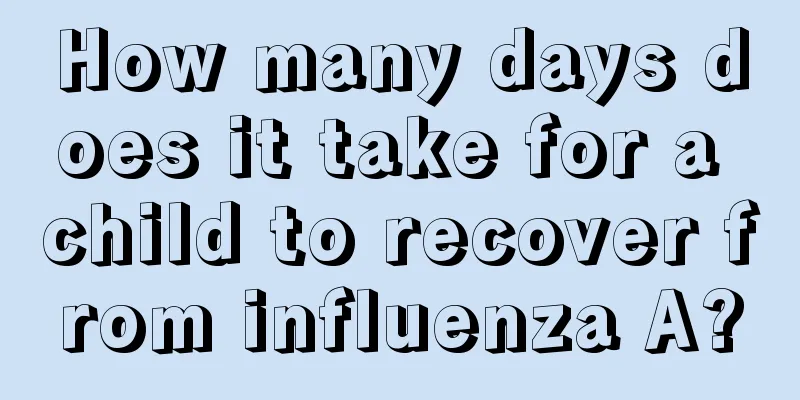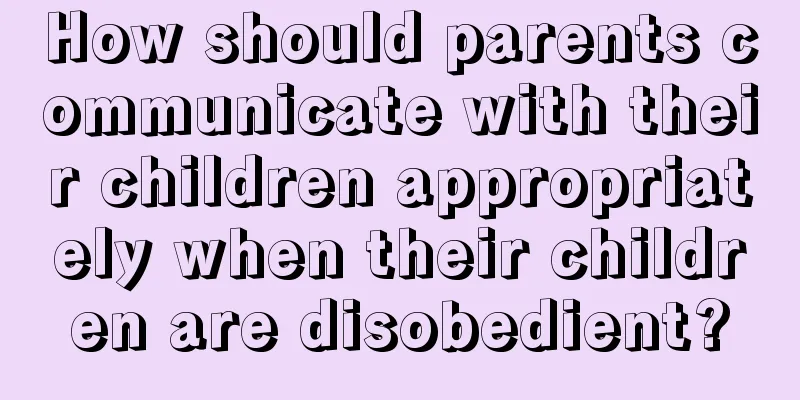What department should I go to if my child drools?

|
Children are important family members in every family. Parents are usually very concerned about their baby's health. It is very common for babies to drool, and most babies will experience a period of drooling. It is usually caused by teething. Is it normal? However, some drooling is caused by oral diseases. Therefore, it is necessary to take the child to the hospital for examination in time. So what department should the baby go to for drooling? What department should I go to if my baby is drooling? A three-year-old child should have all grown teeth. If he is still drooling at this time, it is very likely that his spleen and stomach are weak. You can take your child to see a pediatrician. At home, you can feed your baby more foods such as millet and yam to strengthen the spleen and stomach. Is the baby drooling because of teething? Many babies drool when they are young, especially when they are teething. This is because the baby's mouth is shallow and cannot regulate excess liquid in the mouth, so drooling occurs. As babies grow older, their teeth erupt and the depth of their mouths increases, they gradually learn to use swallowing to regulate excess liquid, and the drooling phenomenon gradually disappears. Parents just need to take good care of their children and don't need to worry too much. If the baby is still drooling after the teething period, parents should consider that the baby has pathological drooling. There are many pathological factors that cause babies to drool, such as inflammation of the oral and pharyngeal mucosa causing poor swallowing; or viral infections, such as hand, foot and mouth disease, chickenpox, etc. Be sure to go to the hospital for diagnosis and timely treatment. Common reasons for baby drooling 1. Growing deciduous teeth When the baby starts to grow milk teeth, the teething will stimulate the trigeminal nerve, further increasing the secretion of saliva. In addition, the baby's mouth is small and he cannot swallow or regulate the saliva in the mouth, so the saliva will naturally flow out after accumulation. 2. Often pinched on the face Some parents or relatives and friends often pinch their baby's cheeks out of love. In fact, this approach is incorrect. Because this can easily cause mechanical damage to the baby's parotid gland, causing the secretion of saliva to greatly exceed the normal amount, thus causing drooling. 3. Oral diseases The baby may be suffering from bacterial infectious stomatitis, or oral diseases such as stomatitis, mucosal congestion, ulcers, etc. caused by herpes virus. These diseases will stimulate the secretion of salivary glands and cause drooling. 4. Congenital diseases People with certain congenital diseases often drool, accompanied by symptoms such as mental retardation, slow reaction, dull eyes, erratic crying, and tongue sticking out of the mouth. 5. Neurological diseases If the baby has a neurological disease, such as damage to the salivation-related centers, nerve conduction pathways, or nerves, drooling may occur. |
<<: What happens when children spit?
>>: White spots in infants' mouths
Recommend
What should I do if my three and a half month old baby has a fever?
Adults feel uncomfortable when they have a fever,...
Introduction to the fastest growth and development period of children
The fastest growth and development period for chi...
What to do if a child has a cold, fever, and runny nose
As we all know, children often suffer from colds,...
How does a baby's heart beat?
Only when the heart beats normally can we live an...
Height and weight standard for five-year-old baby
We all know that children’s developmental indicat...
What is the appropriate water temperature for a child's bath?
Family members still need to know more common sen...
What to do if your child has ringworm on his face?
Every parent hopes that their baby will grow up h...
What to use for baby's butt eczema
Eczema is a problem that many babies have, and ec...
A complete guide to relieve cough in children
Nowadays, cases of babies coughing are common. We...
What are the symptoms of intestinal spasms in children
For parents, babies are their most cherished trea...
Is it okay for a one-year-old baby to toss and turn when sleeping at night?
Babies are very quiet when they sleep, because th...
How to treat a child who always has a fever at night?
Children's immune systems are not fully devel...
What to do if your 2-month-old baby doesn't like to laugh
Everyone knows that children are the most innocen...
23-month-old baby development indicators
From the birth of a newborn to the time the child...
Can babies get the chickenpox vaccine if they have a fever?
When the baby feels unwell, parents must relieve ...









